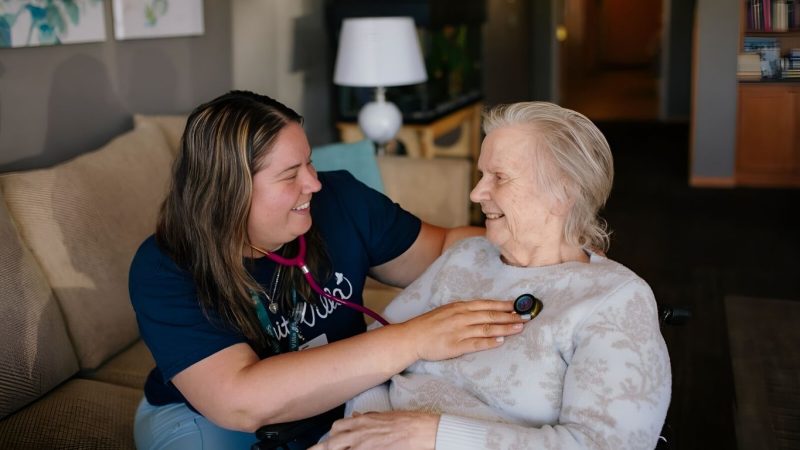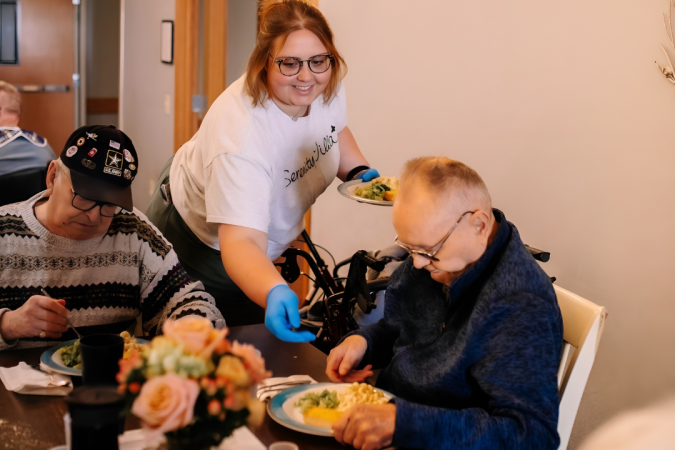Traditions Senior Care Team | October 13, 2024
Choosing the right living arrangement for a loved one who may need assistance can be a daunting task. Assisted living communities offer a supportive and comfortable environment that can significantly enhance quality of life.
Citation: National Council on Aging: “Assisted Living”
In this blog post, we will explore the many benefits of assisted living and how they can positively impact your loved one’s well-being.


Assisted living communities offer a wide range of benefits that can significantly improve the quality of life for seniors and their families. By providing personalized care, a safe and supportive environment, social engagement, nutritious meals, peace of mind, and opportunities for independence and dignity, assisted living communities can help seniors live their best lives.
Key Benefits of Assisted Living:
If you’re considering assisted living for a loved one, we invite you to learn more about Traditions Senior Care. Our dedicated staff is committed to providing exceptional care and creating a welcoming community for all residents. Contact us today to schedule a tour and discover the many benefits of assisted living.